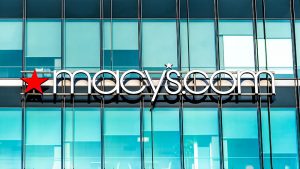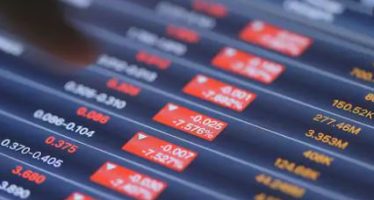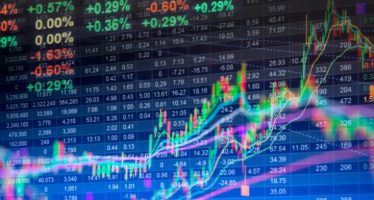The Final Destiny of the Trillions
 When the going gets though, the weak are moved aside. A depressingly large number of the 181 US corporations that last year signed a solemn pledge to fight inequality and work for the benefit society have failed to honour their word. Take retail giant Macy’s: whilst furloughing most of its workers, the company earlier this month paid out $116 million in dividends. Yet, the iconic department store mobilised its lobbyists in Washington to plead with Congress for the relaxation of the conditions attached to the $454 billion federal emergency lending programme. Macy’s and other large companies cannot access the monies because of their poor credit ratings. The retailer sank into junk territory even before the pandemic hit.
When the going gets though, the weak are moved aside. A depressingly large number of the 181 US corporations that last year signed a solemn pledge to fight inequality and work for the benefit society have failed to honour their word. Take retail giant Macy’s: whilst furloughing most of its workers, the company earlier this month paid out $116 million in dividends. Yet, the iconic department store mobilised its lobbyists in Washington to plead with Congress for the relaxation of the conditions attached to the $454 billion federal emergency lending programme. Macy’s and other large companies cannot access the monies because of their poor credit ratings. The retailer sank into junk territory even before the pandemic hit.
In March, the world’s largest hotel operator Marriott International, notified the Securities and Exchange Commission that it intended to shovel another $160 million to its shareholders on the last day of the month. The company also said that its chief executive Arne Sorenson would forgo his $1.3 million annual salary as an expression of solidarity with the thousands of workers sent home on unpaid leave.
However, the company failed to mention that Mr Sorenson negotiated a 7.7 percent salary increase for next year plus a cash bonus of up to 200 percent. In February, he also pocketed more than $3.5 million under the company’s non-equity incentive plan. In a video message to his former ‘associates’, Mr Sorenson wished them the best of luck and good health. Since 2011, Marriott International spent an estimated $16 billion in stock buybacks to drive up its share price. Still, the US hotel industry has asked for $150 billion in federal support monies to ride out the corona storm.
Marriott International is by no means an exception as large companies struggling to survive the pandemic shred the polished Business Roundtable document that was supposed to herald the coming of a new age in corporate social responsibility. Signed only last year, the pledge has now been exposed as an artful piece of empty rhetoric. Only a handful of key signatories kept their commitments. Though perhaps not immune to criticism, Apple, Amazon, Pepsi, and a number of major US banks, moved quickly and decisively to protect their workers and roll out additional benefits to lessen the impact of the pandemic.
In the UK, a likewise deplorable cynicism also set the mood in some of the country’s most iconic businesses that have been quick off the mark to cash in on government largesse. Experienced billionaire tax dodger Philip Green, who took up residence in Monaco to keep the taxman at bay, has brazenly asked the government for help in keeping his Arcadia retail empire afloat. Mr Green has taken out large loans via his company to reward himself with equally large dividend pay-outs. His predatory business practices are by no means the exception in a country that still celebrates wealthy entrepreneurs who need state-supplied crutches to remain standing.
Much admired for his entrepreneurial savvy and flamboyant ways, the real talent of Sir Richard Branson seems to lie in milking the British taxpayer. Under the guise of saving jobs and preserving companies too-big-to-fail, Mr Branson regularly takes his begging bowl to Whitehall where he collects untold millions to keep his enterprises afloat. He is also an undisputed master in tax engineering, structuring his corporate empire in Byzantine ways to minimise its fiscal exposure. Though addicted to tax handouts, Mr Branson dislikes handing over money to the taxman.
In 1971, the budding businessman briefly landed in prison for doctoring the accounts of his record company. It proved time well spent for behind bars Mr Branson became aware of the supreme importance of navigating the boundaries of the permissible with tax avoidance schemes such as the use of multiple trust funds set up in exotic locales. Earlier this year it was discovered that Virgin Care, one of his many business ventures, handles well over £2 billion in monies for the National Health Service (NHS) but somehow manages to avoid paying a single penny in taxes. The company, registered in the British Virgin Islands, claimed not to have made a profit since it was founded in 2010. This is true. Accounts are set up in such a way as to not show a profit in the UK.
In 2013, Mr Branson became a tax exile and moved to the British Virgin Islands in order to deny Her Majesty’s Revenue and Customs well over £1 billion in taxes. He insisted that his move was merely inspired by the natural beauty of the Caribbean archipelago. Whilst he enjoys life on a private island, Mr Branson companies are seeking large government bailouts amounting to well over the billion pounds that he squirreled away surreptitiously. Small wonder that the high-flying, fast-moving Virgin-tycoon enjoys draping himself in the union jack as he scores yet another strike for British industry: as an ardent advocate of ‘socialism for the rich’, Mr Branson has fared exceptionally well cosying up to the state.
Though it is inevitable that some companies find it hard to embrace the spirit of the moment and let go of their old ways, the post-corona world may not look too kindly on their lack of commitment. The state, and the body politic it represents, are set for a major comeback. Most pundits agree that laissez faire, the unbridled supremacy of unfettered market forces, will take a severe hit once economies start to emerge from the lockdown. It will no longer be enough to make pledges for a gentler form of capitalism. Corporate social responsibility (CSR) is likely to take on more concrete forms.
The present pandemic-induced economic crisis is different from previous recessions that usually had been caused by major failings in one particular sector spreading to infect the entire market. No single economic actor bears blame for the pandemic which, in a sense, proves a great equaliser. With nearly the entire business community in the same proverbial boat, a vessel taking on water at an alarming rate, systemic-wide solutions offer the only hope for salvation.
CSR is set to take on additional meaning. For the second time in just over a decade, taxpayers assume the responsibilities of shareholders as losses are again being socialised. Expect shareholders to clamour for the privatisation of profits – their presumed inalienable right – once the business activity picks up. However, just as the scope of this crisis is unprecedented, the untold trillions of euros and dollars being disbursed by states and their central banks are not merely buying relief: they are buying a stake as well.
In their struggle for survival, few large companies realise this. Most chief execs seem to think this is just another bailout put in place to ensure the continuation of habitual business practices after the recession has ended.
Boeing CEO Dave Calhoun knows better and is reluctant to make use of the billions in federal aid money earmarked for his company. Mr Calhoun was one of the first to warn that acceptance of the bailout funds implies a loss of corporate independence. Though his troubled company can use the help, Mr Calhoun has vowed to look for loans elsewhere. Chief execs unable to ignore the helping hand of government must come to accept that the centre of gravity of their fiduciary responsibility is about to shift from shareholders to government. However, that need not be a cause for concern.
As the contours of the post-corona world order slowly emerge, it becomes clear that the vast sums of cash injected into distressed economies cannot be repaid anytime soon – or at least not in the traditional way.
Inflation may ultimately help rid balance sheets of burdensome liabilities. Central banks could also decide to monetise the problem. Some economists are already now suggesting that it might be worth dispelling the fictional notion that the trillions in credit issued will ever find their way back to the central banks. Instead, that credit could conceivably be funnelled via easy instalments to governments which may want to use the windfall to slowly rebalance their accounts in preparation for the next crisis. The bailout trillions are here to stay. The more important question involves determining the ultimate beneficiaries of the cash.
You may have an interest in also reading…
Recession or Depression: Nadir Has Passed, Recovery Delayed
The shape of things to come seems not to resemble the ‘V’ promised early on in the Corona Recession. With
Big Tech Five Cash In on Pandemic
Big Tech is on a high. Yesterday, four of the five FAAAM giants published their quarterly results and surprised Wall
Stock Markets Celebrate Whilst Real Economy Mourns
Stock markets celebrate, ending November on record highs as cash poured into equities to deliver an early Christmas to investors.


















































































